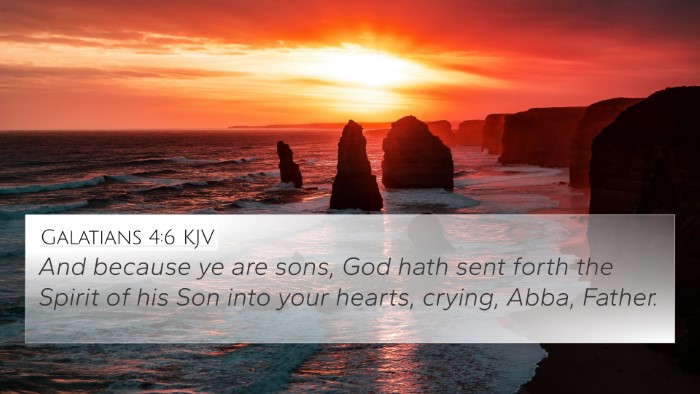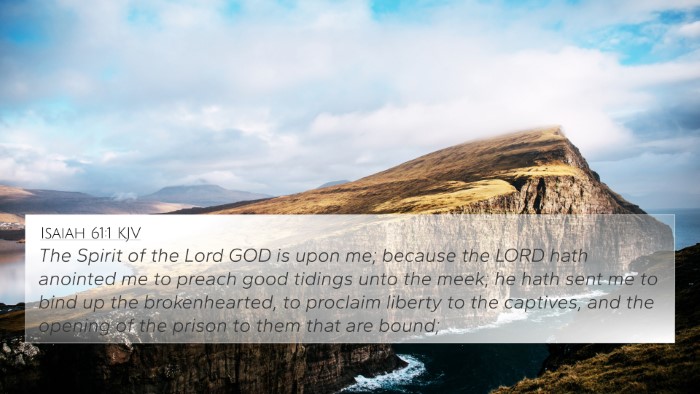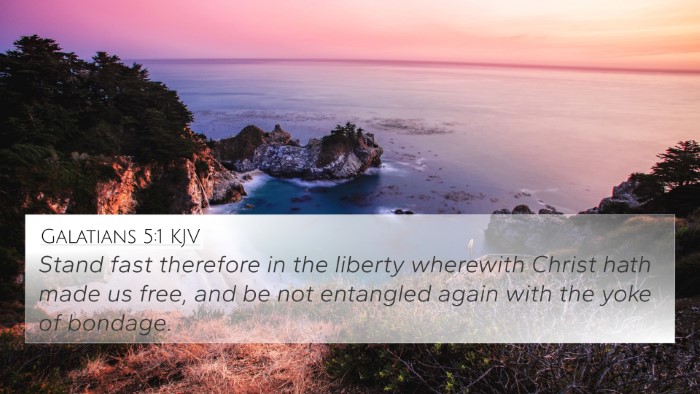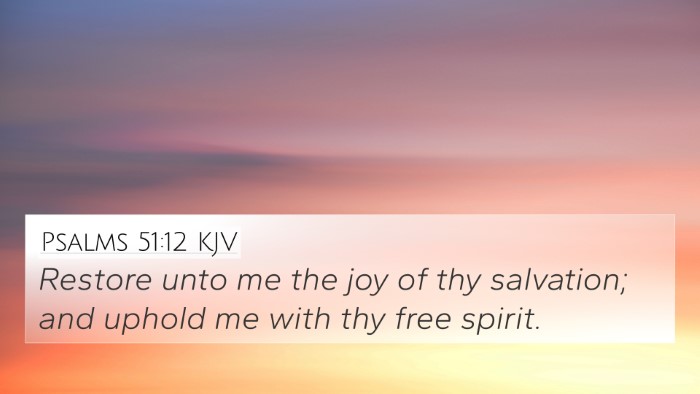In 2 Corinthians 3:17, the Apostle Paul writes, "Now the Lord is that Spirit: and where the Spirit of the Lord is, there is liberty." This verse emphasizes the transformative power of the Holy Spirit, highlighting that true freedom exists in the presence of God. The insights of prominent commentators like Matthew Henry, Albert Barnes, and Adam Clarke reveal a depth of meaning that resonates with various biblical themes and verses.
Interpretation and Meaning
-
Matthew Henry emphasizes the connection between the Lord and the Spirit, noting that the Holy Spirit is the agent of liberty. He explains that freedom in Christ is distinct from legalism, as it liberates the soul from the bondage of sin and the constraints of the law.
-
Albert Barnes points out that the term "liberty" highlights a state of freedom experienced by believers. He links this liberation to the transformative experience of understanding God’s grace, which enables believers to live without fear and with the confidence found in Christ.
-
Adam Clarke provides a detailed analysis of how the Spirit’s presence brings enlightenment and understanding. He argues that where the Holy Spirit prevails, there is not only personal freedom but also the ability to comprehend spiritual truths that lead to a life of righteousness.
Connections to Other Bible Verses
This verse can be cross-referenced with several other passages that reinforce its themes of liberty and the work of the Holy Spirit:
- Galatians 5:1: "Stand fast therefore in the liberty wherewith Christ hath made us free, and be not entangled again with the yoke of bondage." This verse connects with Paul's message about freedom in Christ and warns against returning to the old ways of legalism.
- John 8:36: "If the Son therefore shall make you free, ye shall be free indeed." This scripture links the idea of liberty directly to Christ, affirming that true freedom is granted through His sacrifice.
- Romans 8:2: "For the law of the Spirit of life in Christ Jesus hath made me free from the law of sin and death." Here, the law contrasts with the Spirit, echoing Paul's assertion about life and liberty in the Spirit's presence.
- 2 Timothy 1:7: "For God hath not given us the spirit of fear; but of power, and of love, and of a sound mind." This verse relates to the transformational power of the Holy Spirit that leads to strength and freedom from fear.
- Acts 1:8: "But ye shall receive power, after that the Holy Ghost is come upon you." It highlights the empowering nature of the Holy Spirit, which aligns with the liberating context of 2 Corinthians 3:17.
- 1 Corinthians 15:56-57: "The sting of death is sin; and the strength of sin is the law. But thanks be to God, which giveth us the victory through our Lord Jesus Christ." This victory through Christ reinforces the liberty referenced in Paul's teaching about the Spirit.
- Isaiah 61:1: "The Spirit of the Lord God is upon me; because the Lord hath anointed me to preach good tidings unto the meek." This Old Testament prophecy ties into the New Testament realization of the Spirit's work in bringing freedom and healing.
Thematic Bible Verse Connections
The themes of freedom and the Holy Spirit in 2 Corinthians 3:17 resonate throughout scripture. Other passages reflect similar ideas, creating a web of inter-Biblical dialogue concerning liberty in Christ:
-
Freedom from Sin: Romans 6 discusses being dead to sin and alive in Christ, equating spiritual freedom with a new life in the Spirit.
-
Empowerment by the Spirit: Ephesians 3:16 strengthens the idea that the Spirit empowers believers to live in accordance with God's will, further echoing 2 Corinthians 3:17’s message about liberty.
-
Insight into Truth: John 14:17 describes the Holy Spirit as the Spirit of truth, emphasizing that knowing the truth leads to true freedom.
Application and Reflection
Believers are encouraged to reflect on the freedom that comes through the Holy Spirit. The realization that where the Spirit is present, there is unmistakable liberty can transform individual lives and strengthen community faith. When considering cross-references and thematic connections, explore how the New Testament expands upon Old Testament promises regarding salvation and liberty.
This exploration into 2 Corinthians 3:17 and its interconnectedness with other biblical texts demonstrates how scripture interprets scripture, an essential practice for deeper theological understanding. By utilizing tools for cross-referencing, one can uncover a rich tapestry of biblical truth that emphasizes the reliance on the Holy Spirit for achieving fullness of life, liberty, and understanding in Christ.














